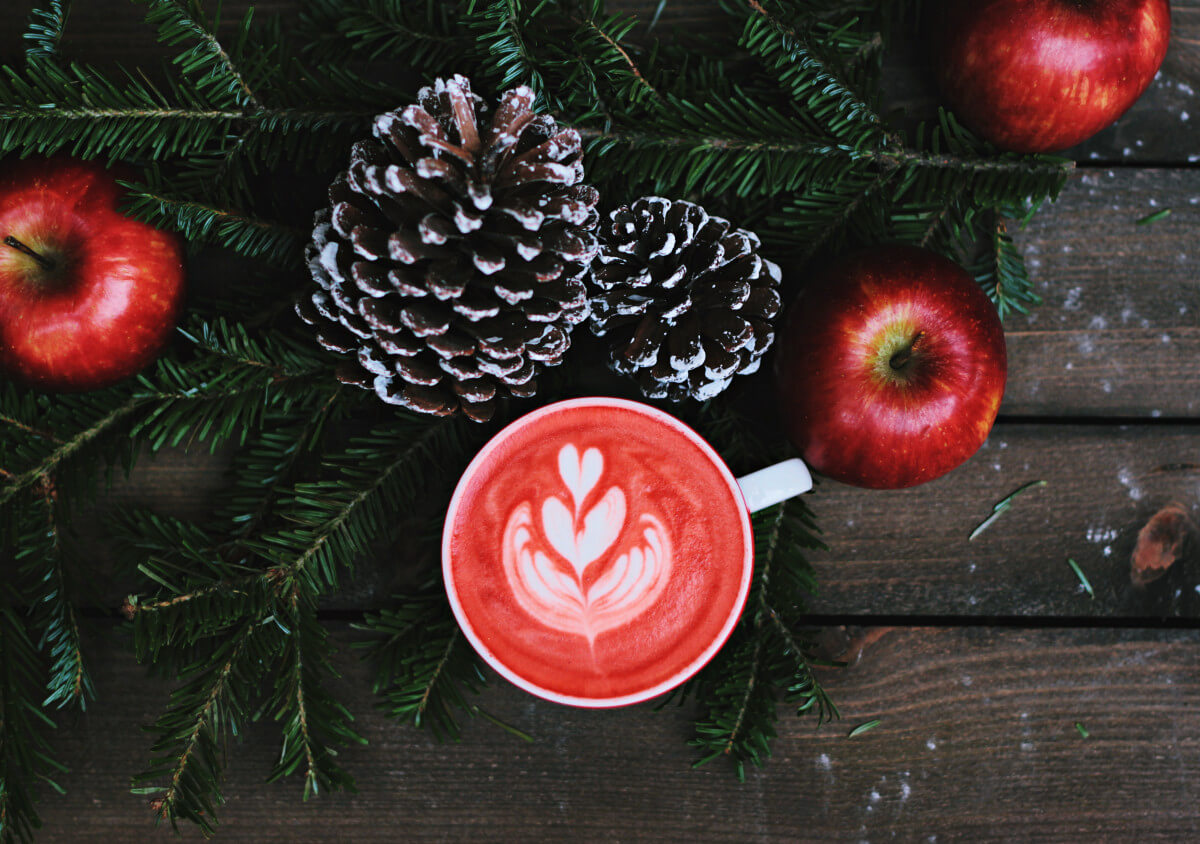The holiday season can be the most wonderful time of the year. It can also be one of the most stressful times of the year. Navigating the holidays presents an excellent opportunity to practice mindfulness and truly enjoy the season.
mind·ful·ness
noun
1.the quality or state of being conscious or aware of something.
"their mindfulness of the wider cinematic tradition"
2.a mental state achieved by focusing one's awareness on the present moment, while calmly acknowledging and accepting one's feelings, thoughts, and bodily sensations, used as a therapeutic technique.
Definitions from Oxford Languages
From Halloween through New Year's, our calendars become fuller, our to-do lists grow longer, and our online shopping carts become heavier as we attempt to create a "perfect" holiday. Mindfulness is an effective tool to support our well-being, especially during the busy holiday season. Mindfulness has even been shown to reduce feelings of loneliness.
9 Ways to Practice Mindfulness During the Holidays
Temper Expectations
Do this for yourself and for others. This holiday may not look like previous holidays and that is alright. Let go of any expectations you have of others and communicate what you are willing to do and how you are willing to participate. Prioritize what is important to you and say yes only when you want to say yes, or when you absolutely must. What do you genuinely enjoy? For example, if you love sending holiday cards, go ahead and enjoy every step of the process—if sending holiday cards feels like another chore on your list, give yourself permission to skip it.
Let Go of Self-Judgment
This can be difficult, especially during the holiday season. We are conditioned to equate busyness with worthiness. And that is not the truth. You do not need to be busy to prove that you are worthy of anything.
Let Go of Your Judgment of Others
Things that are priorities for you may not be for them. 
Knowing our boundaries and honoring them can help us temper our expectations. Healthy boundaries are critical to our well-being and can create a sense of freedom. It is helpful to identify our boundaries and communicate them to others during the holidays to foster a sense of self-respect and self-care. Being mindful of our limits can help us navigate the holidays with a bit more ease.
Still, learning about boundaries? We can define boundaries as rules and limits we set for ourselves in the context of personal interactions. These boundaries can be mental, emotional, moral, financial, or physical. We can surmise some of our personal boundaries by identifying behavior that we deem unacceptable or makes us physically or emotionally uncomfortable.
An example of setting a boundary in a professional setting would be to let our team know we are happily available to answer emails and calls during our scheduled work hours, but that we are not available outside that time. This allows us to be truly present in our home life, and we can return to work feeling refreshed and not resentful. If we are in a leadership position, this is an excellent opportunity to encourage the team to set their own boundaries for work-life balance and create a sense of autonomy and mutual respect.
A personal, emotional example would be letting an acquaintance know that we are not available for daily, hour-long venting sessions. In this instance, we need to protect our emotional energy, and conserve that energy for our loved ones. This can feel challenging, especially for those of us who are "people-pleasers," but as we continue to build our boundaries as a mindfulness practice, we will find this becomes easier.
There are many resources available to learn more in-depth about boundaries such as Brené Brown's Podcast, Unlocking Us and this blog post from PsycheCentral.
Take 5 Minutes to Write a Daily or Weekly Schedule
Just the act of jotting down what your plan is for the day or week can unclutter your mind. If it's written down, your mind isn't stressed about remembering everything you need to accomplish. Research has shown that pen and paper are mightier than the keyboard when it comes to memory². The brain is fun like that.
Be sure to include healthy meals, movement, and self-care time on your calendar. We are more likely to stick to our plan if it is written down. If we see a busy day ahead, we know we can put together dinner in the slow cooker in the morning, and dinner will be waiting for us at the end of the day. If we want to make sure we make it to our favorite yoga class, if we put it on the schedule, we are less likely to skip it because something else distracted us. Some people enjoy writing their schedule the night before to clear their mind before bedtime—others find doing it first thing in the morning starts their day on the right foot. For some people, Sunday morning is the time that works best for them for the whole week. Find what works best for you.

Meditation has been shown to reduce stress³. Just five minutes a day can make a difference in our mood, our heart rate, and our quality of sleep⁴. There are many different types of meditation—breathwork, body scans, guided imagery, etc. Meditation is something we can do on our own, or if we'd like more structure to our mediation practice, many apps can help you, such as Headspace or Calm. First thing, as we rise in the morning, as part of our bedtime routine, or after a stressful meeting, there is no wrong time to add five minutes of meditation into our day.
Incorporate Mindful Movement
We can practice mindfulness during intentional movement. Yoga, stretching, and walking are great opportunities to practice mindfulness. Try to focus on your breathing and what your body is experiencing in the movement. When your mind wanders, acknowledge your thoughts and gently bring your attention back to your breath. If you want to try a walking meditation, this is a great opportunity to leave the headphones at home, and focus on the sensations of your body.
Practicing mindful movement can release physical and mental stress, leaving your overall mood improved.
Eat for Enjoyment
Slowing down to breathe and savor our food is not only a great way to practice mindfulness—it's a great way to help with proper digestion, which can help us feel our best. One of our favorite ways to incorporate mindful eating is to make sure we sit down for our meal and take 5 deep breaths before eating. This simple breathing exercise resets our body into a parasympathetic state (the rest and digest state) and helps to reduce heartburn, bloating, and other signs of digestion distress. Continue mindful eating throughout your meal by focusing on the colors, textures, and flavors of the food. Every few minutes, check in with your body and be curious about how you are feeling—are you satisfied? Or are you still hungry? Focus on those you are sharing the meal with and enjoy the conversation. Eating alone? Use this time to enjoy a little quiet time—try to refrain from doom scrolling social media. Eating while distracted can lead to overeating, poor digestion, and simply not feeling satisfied.
The holidays can also mean lots of special foods. We can apply mindfulness by choosing the treats we would like to enjoy, instead of mindlessly eating just because it's offered. Relish your grandmother's famous panettone and skip the store-bought fruit cake. At a party or holiday, dinner enjoy the foods you can only get on these special occasions. Does a friend make the best creamed spinach only once a year? Go ahead and enjoy a serving (or two), but pass over the broccoli casserole that you don't like anyway.
Find Gratitude
It can be easy to find gratitude for the big things like our health and our family. Discovering gratitude in the small things can elevate your mindfulness practice. This can be practiced by focusing on the task at hand in the moment. For example, while making tea, we can discover that we are thankful for the availability of the hot water, the kettle, our favorite mug, our choice of tea, and the time we get to spend making the tea. Being truly present in the moment with mindfulness can help develop our sense of gratitude.
Focus on Your People
The people in our lives are what make our lives wonderful. We can express our gratitude and love for them by spending time with them and creating memories with them. Being mindful and appreciative of our friends and family can help us focus on what really matters to us and help us avoid being drawn into the over-commercialization of the holiday.
We can practice this focus by unplugging from all the electronics that surround us. We can turn off the tv and put down our phone to focus on those that matter most. Consider having a conversation with your people about forgoing presents and sharing experiences instead. This can allow us to truly connect with a deeper relationship.
Don't Let Perfection Stand in the Way
The holiday season can be a tricky time for many. Practicing mindfulness can really help us destress, be present, and truly enjoy the magic of the season. But know that if we do find ourselves stressed out, we have not failed. Mindfulness is not another task to be checked off. It is a tool to help us manage our well-being. If we do find ourselves struggling, we can acknowledge our emotions and practice self-compassion. We can choose one of the above mindful practices to reconnect with ourselves.
Whether we choose to temper our expectations, commit to writing a schedule, try meditation, incorporate mindful movement or eating, practicing gratitude, or focusing on the people that mean the most to us, choosing to prioritize mindfulness can help with our overall sense of well-being. We can also choose to incorporate all of these practices into our daily lives and find what works best for us. There is no right or wrong way to practice mindfulness. Finding what works for us can help ease the stress of the holidays, make us more present in our lives, and learn to truly enjoy our time this season.
We wish you the happiest of holidays!
Need a bit of extra support this holiday season when it comes to your health and wellness? Or know someone else who would? Reach out to one of our nutritional practitioners, and we will build a personalized plan to make sure you are feeling your best during this busy time of year.
About the Author:
Karen became a Nutritional Therapy Practitioner after her own medical crisis and autoimmune diagnosis led her on a journey of discovering how vital proper nutrition is to feeling happy and healthy. She became passionate about helping others regain their energy and sense of well-being through food and lifestyle choices. Karen lives in Southern California with her family and can be found outdoors most of the time. She loves helping clients find the joy of creating delicious foods that nourish their mind, body and spirit. Read more about Karen.
The information presented on this website is intended for educational purposes only. Statements within this site have not been evaluated or approved by the Food and Drug Administration. This content is not intended to diagnose, treat, cure, or prevent any specific condition or disease, nor is it medical advice and should not be considered a substitute for professional medical expertise. Readers of this content are advised to consult their doctors or qualified health professionals regarding specific health conditions or concerns. One should always consult a qualified medical professional before engaging in any dietary and/or lifestyle change or new health program. Curated Wellness does not take responsibility for any health consequences of any person or persons following the information in this educational content.
References
1 Lindsay EK, Young S, Brown KW, Smyth JM, Creswell JD. Mindfulness training reduces loneliness and increases social contact in a randomized controlled trial. Proc Natl Acad Sci U S A. 2019;116(9):3488-3493. doi:10.1073/pnas.1813588116
3 Goyal M, Singh S, Sibinga EM, Gould NF, Rowland-Seymour A, Sharma R, Berger Z, Sleicher D, Maron DD, Shihab HM, Ranasinghe PD, Linn S, Saha S, Bass EB, Haythornthwaite JA. Meditation programs for psychological stress and well-being: a systematic review and meta-analysis. JAMA Intern Med. 2014 Mar;174(3):357-68. doi: 10.1001/jamainternmed.2013.13018. PMID: 24395196; PMCID: PMC4142584.
4 Rusch HL, Rosario M, Levison LM, et al. The effect of mindfulness meditation on sleep quality: a systematic review and meta-analysis of randomized controlled trials. Ann N Y Acad Sci. 2019;1445(1):5-16. doi:10.1111/nyas.13996










